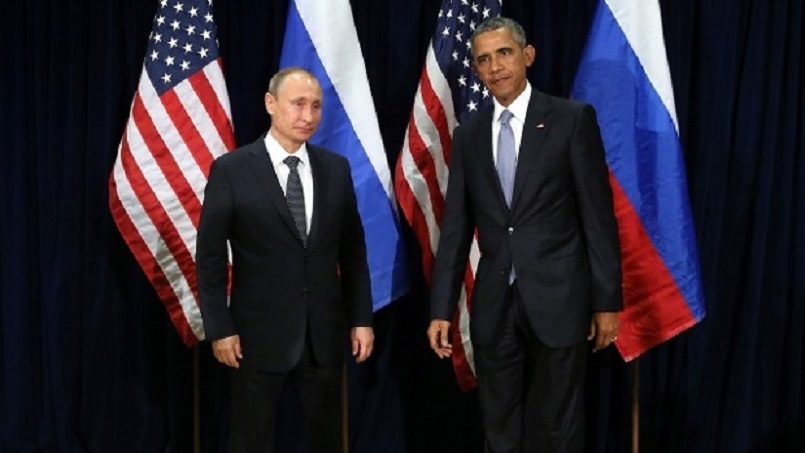
US President Barack Obama and his Russian counterpart Vladimir Putin were meeting Monday as talks between their governments on ending violence in Syria ended without an agreement.
The two leaders were conversing on the sidelines of the Group of 20 summit here, according to a US National Security Council spokesman. More details about their discussion were expected later Monday, but US officials said before the summit that Syria and Ukraine would likely be on the agenda of an Obama-Putin huddle.
The exchange came after a US official said talks had ended between US Secretary of State John Kerry and his Russian counterpart Sergey Lavrov, who had been working to negotiate a plan that would have boosted military cooperation between the two nations in an effort to better target terrorists and prevent civilian deaths.
But negotiators failed to work though differences, and the talks have ended for now.
"There are still issues to resolve," the US official said. Neither side indicated what the points of contention were, or when they expected talks to resume.
Cautious optimism
On Sunday, cautious optimism prevailed that a deal could be struck between Washington and Moscow, long at odds over policy in Syria. Kerry and Lavrov had been working "around the clock" to come to an agreement, US President Barack Obama told reporters.
Russian forces have aligned with Syrian President Bashar al-Assad to target US-backed opposition fighters that Moscow and Damascus claim are terrorists. The campaign has spurred a humanitarian crisis and caused millions of Syrians to flee for Europe.
The US hopes to align with Russia to identify terrorist targets, including ISIS and the Nusra Front, a group formerly tied to al-Qaeda. Officials hope a ceasefire will help advance talks on a political transition that would lead to the resignation of Syrian leader Bashar al-Assad.
Any deal to end widespread suffering in Syria was likely to be met with doubt after past settlements, including a ceasefire agreed to in February, failed -- a fact Obama acknowledged on Sunday.
"Given the failure of previous cessations of hostilities to hold, we approach it with some skepticism," Obama said.
But he insisted any work toward easing the deeply troubling humanitarian crisis was valuable.
"It is worth trying," he said. "To the extent that there are children and women and innocent civilians who can get food and medical supplies and, you know, get some relief from the constant terror of bombings, that's worth the effort."
Russia and the US
A deal on Syria could place US-Russia ties in a firmer position as Obama prepares to leave office. Deep divides over Syria have marred Obama's relationship with Putin, adding to a litany of discord between the US and Russia that's driven relations to their lowest level since the Cold War.
This week's interaction between the two men could be a final attempt to salvage what's become one of the most acrimonious relationships on the global stage. Putin's persistent support for the Syrian regime, Moscow's moves in Ukraine and the charge that Russia may be meddling in the US presidential contest have built a deeply antagonistic dynamic between the two leaders.
Obama said on Sunday that Russian participation was essential.
"Our conversations with the Russians are key because, if it were not for the Russians, then Assad and the regime would not be able to sustain its offensive," he said.
